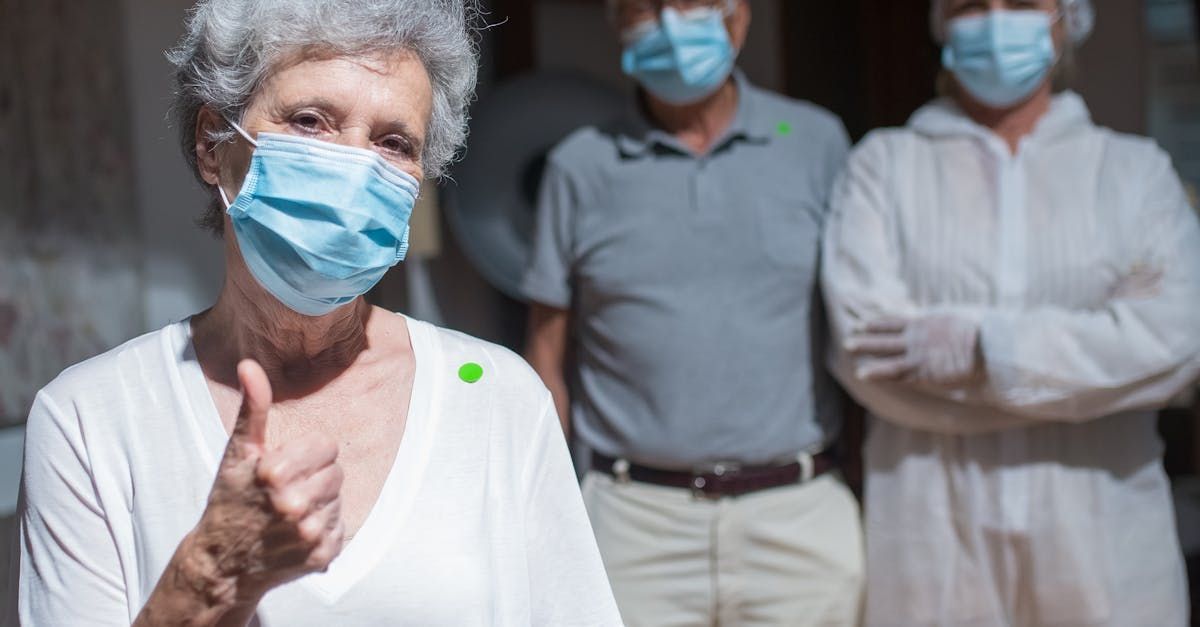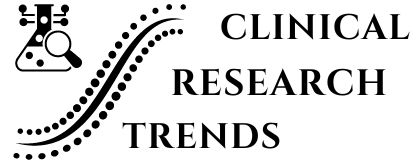The Impact of Social Media on Clinical Research
Social media has fundamentally transformed communication, information sharing, and engagement across various sectors, including healthcare. The rapid growth of platforms such as Facebook, Twitter, LinkedIn, Instagram, and newer players like TikTok has created unprecedented opportunities for connecting with broad and diverse audiences. In the context of healthcare, and specifically clinical research, social media has emerged as a powerful tool for enhancing various aspects of the research process. From recruiting participants to disseminating research findings, social media offers unique advantages that traditional methods cannot match.
Clinical research is the cornerstone of medical advancement, providing the evidence base for new treatments, interventions, and understanding of diseases. It involves rigorous methodologies to test hypotheses, evaluate new therapies, and improve healthcare outcomes. However, the field faces numerous challenges, such as recruiting sufficient and diverse participants, ensuring patient retention, and effectively communicating results to both scientific and public audiences. This blog aims to explore the multifaceted impact of social media on clinical research, discussing its applications, benefits, challenges, and future directions.
Social Media for Patient Recruitment
Recruiting participants for clinical trials is a crucial step in the research process, often determining the success or failure of a study. Traditional recruitment methods, including advertisements in newspapers, flyers, posters in medical facilities, and referrals from healthcare providers, have limitations in reach and efficiency. Social media platforms, with their vast user bases and sophisticated targeting capabilities, have revolutionized this aspect of clinical research.
Using Social Media Platforms to Reach Potential Participants
Social media platforms offer a rich and diverse pool of potential participants. For example, Facebook, with its billions of users worldwide, allows researchers to target specific demographics based on age, location, interests, and behaviors. This targeting capability is invaluable for recruiting participants with specific health conditions or demographics, such as age-related studies or rare disease research. Twitter's real-time nature and use of hashtags enable researchers to tap into ongoing conversations and communities related to specific health issues.
LinkedIn, primarily a professional networking platform, is particularly useful for recruiting healthcare professionals or individuals interested in participating in research due to their profession or educational background. Instagram and TikTok, with their visual and engaging content formats, can be effective in reaching younger demographics, who are often underrepresented in clinical research.
Strategies for Effective Recruitment Campaigns
Effective social media recruitment campaigns require careful planning and execution. Key strategies include:
- Targeted Advertising: Utilizing the advertising tools offered by social media platforms to create targeted ads based on demographics, location, and interests. This ensures that the recruitment message reaches the most relevant audience.
- Engaging Content: Creating visually appealing and informative content that resonates with the target audience. This could include infographics, videos, patient testimonials, or simple explanations of the study's purpose and potential benefits.
- Collaboration with Influencers and Patient Advocacy Groups: Partnering with influencers who have a significant following in relevant health or wellness communities can amplify the reach of recruitment efforts. Similarly, collaborating with patient advocacy groups can help reach individuals already engaged with a particular health issue.
- Transparency and Communication: Clearly communicating the study's purpose, requirements, and benefits to potential participants. Providing contact information or links to detailed study information can help address potential participants' questions or concerns.
Case Studies and Examples
Several case studies highlight the success of social media in patient recruitment. For instance, a study on multiple sclerosis (MS) utilized Facebook ads to target individuals based on their interest in MS-related pages and groups. This approach resulted in a substantial increase in the recruitment of eligible participants compared to traditional methods.
Another example involves a study on a new diabetes treatment. The research team used a combination of Facebook ads and posts in diabetes-related groups to recruit participants. The campaign not only succeeded in meeting recruitment goals but also increased awareness of the study and the treatment being tested.
These examples illustrate how social media can significantly enhance the efficiency and effectiveness of patient recruitment in clinical research, reaching diverse populations that might otherwise be inaccessible.
Enhancing Patient Engagement and Retention
Engaging and retaining participants throughout a clinical study is as crucial as recruitment. Participant dropout can compromise the validity of research findings, making it essential to keep participants motivated and involved. Social media provides various tools and strategies to enhance patient engagement and retention.
Building Online Communities for Support and Information Sharing
Online communities on platforms like Facebook Groups, Reddit, or specialized health forums provide spaces where participants can connect, share experiences, and receive support. These communities can be particularly beneficial in long-term or chronic disease studies, where ongoing support and a sense of community can enhance participant adherence and satisfaction.
For example, a clinical trial for a new treatment for chronic pain may establish a private Facebook group for participants. In this group, participants can share their experiences, ask questions, and receive encouragement from both peers and study staff. This community aspect can reduce feelings of isolation and increase participants' commitment to the study.
Utilizing Social Media for Ongoing Patient Communication
Social media also facilitates ongoing communication between researchers and participants. Regular updates about the study's progress, tips for managing symptoms or side effects, and educational content about the disease or condition being studied can all be shared via social media channels. This continuous engagement helps keep participants informed and involved, reducing the likelihood of dropout.
For instance, a study on a new treatment for depression might use Instagram or Twitter to share weekly updates, motivational quotes, and mental health tips. This consistent communication can help participants feel more connected to the study and its objectives.
Impact on Patient Retention Rates
The impact of social media on patient retention rates is noteworthy. Studies have shown that participants who feel well-informed and supported are more likely to remain in a study. By providing a platform for continuous engagement and support, social media can help reduce dropout rates and improve data quality.
In a clinical trial for a new asthma medication, for example, the research team used a combination of Facebook and email newsletters to keep participants engaged. The content included study updates, educational material on asthma management, and reminders for follow-up visits. As a result, the study achieved a higher retention rate compared to previous trials without such engagement strategies.
Data Collection and Analysis
The role of social media in clinical research extends beyond recruitment and engagement to data collection and analysis. Social media platforms provide a rich source of real-time data that can offer valuable insights into patient experiences, public health trends, and the impact of health interventions.
Leveraging Social Media for Real-Time Feedback and Data Collection
Researchers can use social media to collect qualitative data from participants and the broader public. For example, monitoring discussions in health-related forums or groups can reveal insights into patient experiences with certain treatments or healthcare services. This real-time feedback can be invaluable for understanding patient needs, identifying emerging health issues, or assessing public sentiment toward new medical interventions.
Surveys and polls conducted through social media channels can also provide quantitative data. For example, a research team studying the side effects of a new drug might use Twitter polls or Facebook surveys to gather data on patient-reported outcomes. This approach allows for rapid data collection and can reach a broad and diverse audience.
Analyzing Social Media Data for Research Insights
Social media data analysis, or social media analytics, involves examining data from social platforms to uncover patterns and trends. This can include analyzing the volume of discussions on a particular topic, sentiment analysis to gauge public opinion, and network analysis to understand how information spreads within a community.
For example, during the COVID-19 pandemic, researchers used social media analytics to track public sentiment toward vaccines, identify the spread of misinformation, and understand the impact of lockdown measures on mental health. This type of analysis can provide valuable insights that complement traditional research methods and help inform public health strategies.
Ethical Considerations and Data Privacy
The use of social media data in research raises important ethical and privacy concerns. Researchers must navigate these challenges to ensure that data collection and analysis respect individuals' privacy and comply with legal and ethical standards. Key considerations include:
- Informed Consent: Ensuring that participants are aware of how their data will be used and obtaining consent where necessary.
- Data Anonymization: Protecting individuals' identities by anonymizing data, especially when dealing with sensitive health information.
- Transparency: Being transparent about data collection methods and purposes, and providing clear information to participants and the public.
- Data Security: Implementing robust data security measures to protect against data breaches and unauthorized access.
Addressing these ethical issues is crucial for maintaining public trust and ensuring the responsible use of social media in clinical research.
Dissemination of Research Findings
Disseminating research findings is a critical step in the research process, ensuring that new knowledge reaches those who can use it to make informed decisions. Social media provides an effective platform for sharing research findings with a broad audience, including patients, healthcare professionals, policymakers, and the general public.
Using Social Media to Share Research Results with the Public
Traditionally, research findings are published in academic journals, which may not be accessible to the general public. Social media platforms offer an alternative means of dissemination, making research findings more accessible and engaging. Researchers can use social media to share key findings, infographics, videos, and other visual content that simplifies complex information.
For example, a research team studying the effects of a new dietary intervention on heart health might use Instagram to share infographics summarizing their findings. These infographics can include key data points, visual representations of results, and practical tips for incorporating dietary changes into daily life.
Engaging Stakeholders and the Scientific Community
Social media is also a valuable tool for engaging with other researchers, healthcare professionals, and stakeholders. Platforms like Twitter and LinkedIn are widely used in the scientific community for sharing research updates, discussing recent findings, and networking with peers. Researchers can use these platforms to participate in discussions, share their work, and collaborate with others in their field.
For instance, a researcher studying mental health might use Twitter to share their latest paper, engage in discussions with other mental health professionals, and highlight the implications of their findings for clinical practice. This type of engagement can help build a researcher’s professional network and increase the visibility and impact of their work.
Case Studies of Successful Dissemination
Several case studies highlight the successful use of social media for disseminating research findings. One notable example is the dissemination of findings from a large-scale study on the health impacts of air pollution. The research team used Twitter, Facebook, and a dedicated website to share infographics, videos, and blog posts summarizing the study's key findings. This multi-platform approach reached a wide audience, including policymakers, health professionals, and the general public, raising awareness about the importance of air quality and its health implications.
Another example is the use of social media by the World Health Organization (WHO) to disseminate information about the COVID-19 pandemic. The WHO used platforms like Twitter and Facebook to share real-time updates, infographics, and videos, providing the public and healthcare professionals with accurate and timely information.
Challenges and Limitations
While social media offers significant benefits for clinical research, it also presents challenges and limitations that researchers must address.
Managing Misinformation and Ensuring Credibility
One of the major challenges of using social media for clinical research is managing misinformation and ensuring the credibility of information shared. Social media platforms are notorious for the spread of misinformation, which can undermine public trust in research and healthcare. Researchers must be proactive in sharing accurate, evidence-based information and correcting misinformation when it arises.
For example, during the COVID-19 pandemic, misinformation about vaccines spread rapidly on social media. Researchers and public health organizations had to work diligently to counteract this misinformation, providing accurate information about vaccine safety and efficacy.
Addressing Privacy Concerns and Data Security
Privacy concerns and data security are critical issues when using social media for research. Social media platforms collect vast amounts of personal data, and researchers must ensure that this data is handled ethically and securely. This includes obtaining informed consent, anonymizing data, and implementing robust data security measures.
Researchers must also be aware of the specific data privacy regulations in their region, such as the General Data Protection Regulation (GDPR) in the European Union, and ensure compliance with these regulations.
Overcoming Resistance from Traditional Researchers
Despite the growing recognition of social media's value in research, some traditional researchers remain skeptical. Concerns may include the quality of data obtained from social media, the reliability of online engagement, and the potential for ethical issues. Overcoming this resistance requires demonstrating the benefits of social media in research and providing training and support for researchers unfamiliar with these tools.
Future Directions and Innovations
The integration of social media and clinical research is still evolving, and the future holds exciting possibilities. Emerging trends and innovations are likely to further enhance the role of social media in research.
Emerging Trends in Social Media and Clinical Research
One emerging trend is the use of social media for digital health interventions. This includes online support groups, telemedicine consultations, and mobile health apps, which can complement traditional clinical trials. For example, a clinical trial for a weight loss intervention might include an online support group where participants can share their progress, receive encouragement, and access resources.
Another trend is the use of social media analytics to identify and recruit "digital phenotypes" – groups of individuals who exhibit certain behaviors or characteristics online. For instance, researchers might use social media to identify individuals who frequently post about specific health conditions, indicating a potential interest in participating in related research.
Integration with Digital Health Technologies
The integration of social media with other digital health technologies, such as wearable devices and electronic health records (EHRs), offers exciting possibilities for research. Wearable devices can provide real-time data on physical activity, sleep patterns, heart rate, and other health metrics, while EHRs offer detailed medical histories and treatment data. By combining these data sources with social media data, researchers can gain a more comprehensive understanding of patient health and treatment outcomes.
For example, a study on diabetes management might use data from wearable devices to monitor participants' physical activity and blood sugar levels, while also analyzing social media data to understand participants' experiences and challenges. This comprehensive approach can provide a richer and more nuanced understanding of the factors influencing health outcomes.
Vision for the Future of Social Media in Research
Looking ahead, the vision for the future of social media in clinical research includes greater collaboration and transparency. Social media can serve as a platform for open science, where researchers share data, methods, and findings transparently and collaboratively. This open approach can accelerate the pace of research, promote innovation, and ensure that research benefits society as a whole.
Additionally, the use of artificial intelligence (AI) and machine learning in social media analytics is likely to grow, enabling more sophisticated analyses of social media data. AI can help identify patterns and trends in large datasets, predict health outcomes, and even personalize interventions based on individual behaviors and preferences.
Notable Labs: Harnessing Social Media in Clinical Research
Notable Labs, a leader in clinical research, is leveraging the power of social media to transform the way clinical trials are conducted. Social media platforms like Facebook, Twitter, LinkedIn, Instagram, and TikTok provide unparalleled opportunities for engaging with a wide and diverse audience. For Notable Labs, these platforms are essential tools for improving participant recruitment, engagement, and the dissemination of research findings.
By using targeted advertising and strategic content, Notable Labs reaches potential participants more efficiently than traditional methods. Social media also facilitates ongoing communication, helping to retain participants throughout the study. Additionally, the vast amount of data available from social media interactions aids in real-time analysis and understanding of patient experiences.
Notable Labs is committed to ethical practices, ensuring data privacy and combating misinformation, while embracing the innovative potential of social media to advance medical research.
Conclusion
The impact of social media on clinical research is profound and multifaceted. From recruiting participants to engaging patients, collecting data, and disseminating findings, social media offers unique opportunities to enhance the research process. It enables researchers to reach diverse populations, improve patient engagement and retention, and share research insights with a broader audience.
However, the use of social media in research also presents challenges, including managing misinformation, ensuring data privacy, and overcoming resistance from traditional researchers. Addressing these challenges is crucial for the responsible and ethical use of social media in research.
As we move forward, it is essential for researchers to embrace the potential of social media and integrate it into their research methodologies. This requires not only leveraging the tools and platforms available but also adhering to ethical standards and best practices. The future of clinical research is undoubtedly digital, and social media will play a central role in shaping this landscape.
Researchers, healthcare professionals, and the public must work together to harness the power of social media for the greater good. By doing so, we can accelerate the pace of medical discovery, improve healthcare outcomes, and ensure that the benefits of research are accessible to all. The call to action is clear: embrace social media as a vital tool in the research toolkit, and use it responsibly and ethically to advance knowledge and improve lives.










